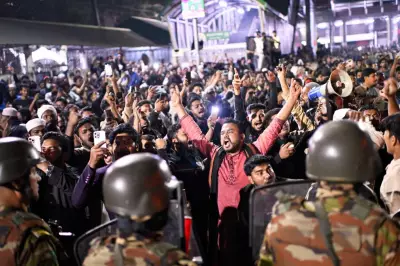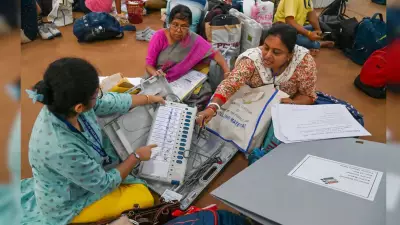
Railway Official Shares Simple Trick for Senior Citizens to Secure Lower Berths
A Travelling Ticket Examiner (TTE) from Indian Railways has revealed a clever strategy to help senior citizens secure lower berths on trains. This insider advice has gone viral on social media platforms like Reddit, emerging just as Indian Railways implements significant updates to its passenger reservation system to assist travelers with mobility challenges.
New IRCTC System Automatically Allots Lower Berths to Eligible Passengers
Indian Railways has recently upgraded its passenger reservation system to automatically assign lower berths to eligible passengers when available during booking. This priority seating now benefits senior citizens, women above 45 years, pregnant women, and persons with disabilities. The system aims to reduce discomfort for those who find it difficult to climb upper berths.
A new feature on the IRCTC platform allows users to select "Book only if lower berth is available" during the reservation process. When activated, this option cancels the booking request if a lower berth isn't free, preventing situations where passengers receive berths they cannot comfortably use.
The TTE's Booking Strategy for Multiple Senior Travelers
The railway employee shared his practical advice while traveling on the New Delhi-Dibrugarh Rajdhani Express. He explained that he frequently encounters senior citizens complaining about being allotted middle and upper berths despite their age.
"At the maximum, two senior citizens should book their tickets together," the TTE emphasized. "In that case, their lower berths will be confirmed. If three or more seniors book their tickets together, they won't be able to enjoy the lower-berth benefits."
He elaborated further: "If you want to enjoy lower-berth benefits, do not book for more than two people at one go. If you are four senior citizens, divide it into two parts. Then, you'll get lower berths."
Additional Measures for Passenger Comfort
Beyond the automated system, Indian Railways has issued directives to TTEs to reassign any vacant lower berths during journeys to these priority passengers whenever possible. Officials stated that these revised rules represent part of a broader effort to make train travel more sensitive and inclusive for passengers with mobility challenges.
These changes align with the government's Accessible India Campaign, focusing on improving comfort and accessibility across the railway network. Zonal authorities have received instructions to closely monitor lower berth allotment and promptly address any reported issues.
Under the updated system, pregnant women can request special accommodation by providing appropriate medical documentation. The automated preference system ensures that women aged 45 and above, senior citizens, and persons with disabilities receive priority consideration for lower berths during the initial booking process itself.
Social Media Reactions to the Railway Hack
The TTE's suggestion sparked various reactions on Reddit, with some users finding humor in the situation. One user joked about family separation: "Senior citizen in S1, their family (caretakers) in S12."
Another offered a sarcastic remark about the practical challenges: "A very sarkari babu rule. So if they are 4 in a family traveling with 2 senior citizens, then in a single PNR, they can't book because as in the above case, all 4 may not have the LB. But if they book 2 together then the old people can get lower berth but since it's different PNR, the other family members maybe in a different coach altogether. Great work, Indian Railways."
Some users suggested alternative approaches, with one commenting: "I am ready to pay ₹50-100 more for choosing each seat like planes." Another observer pointed out the ironic nature of the situation, noting: "It's not a bug, it's a feature!"
These updates represent Indian Railways' ongoing commitment to enhancing passenger experience, particularly for those requiring special assistance during train journeys across India.





